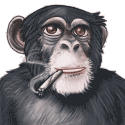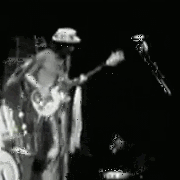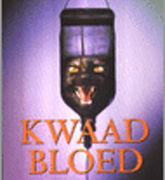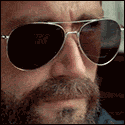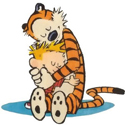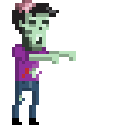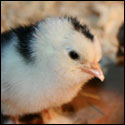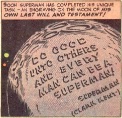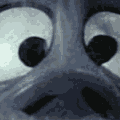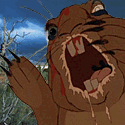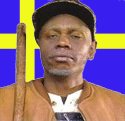|
A long while ago I finished Samuel Butler's The Way of All Flesh, a roman à clef novel of a young man being press-ganged into the priesthood, disgracing himself, slumming it for a while before he finds some self-respect along with a sizable inheritance. Although better than Erewhon Revisited, this is not a great book (though the opening chapters which rattle through 2 generations of disappointment are great). The book's thesis could be summed up as the pleasantest course is the best, and any paradoxes and hypocrisies are widely ignored for the sake of a quiet life. It's a bit too placid for me, to be honest. Although there are flashes of Erewhon's piercing parodies, he's mostly content to haw on how nice it is to be nice. I should ferret out The Fair Haven or some of his essays. After that was Smiley's People by le Carré where a retired Smiley investigates a murder of a long-dormant agent, a mystery which of course takes him to the very heart of his nemesis Karla. Not as good as Tinker, Tailor... which was not as good The Spy Who Came in from the Cold and I'm currently looking at The Honourable Schoolboy which simply looks far too long to be as good as this. It's also an old man's novel, where all of Smiley's contemporaries are ghosts and he's being crowded out by young twits with no respect. Possibly a book I'd enjoy more when I'm collecting my bus-pass. Next was a selection of Montaigne's essays, translated and annotated by J.M. Cohen. Montaigne comes across as a forward thinking and amazingly modern, if you can filter out the ubiquitous misogyny. The essays get more undisciplined as they go on, and the number of caveats warning you of this increase apace*. There's something exasperating about reading a 60 page essay on vehicles which wants to talk about anything else. There are some great essays within, but I'd have enjoyed it more if it'd been selected still further. Given all the credit it gets, I assume it's all above me. I've then read Both Flesh and Not by David Foster Wallace and the D.T. Max Biography of same. The former is filled with reviews and essays left out of earlier collections, along with any memos and notes of the slightest possible worth. The whole thing is bulked out further with ridiculous spacing, a colossal font size and pages of words with their definitions (from his own personal word hoard, but still). It's an insult to buy a book so shamelessly inflated, especially since, if it had been printed respectably, it'd be far from the slimmest book on my shelf. The actual meat of the book is superb, but far from essential unless you're a completest. The Max Biography is edging onto necessary though. Research abounds with no obvious witness left unquoted, and he never speaks for Wallace without backing it up with evidence from letters or anecdote. The book's marred by one or three terrible sentences which an editor should have caught but all in all it's a great biography There are also a bunch of novellas; first off Collected Fictions by Jorges Luis Borges. The first Borges I've read and a great book. Split into two sections; The Garden of Forking Paths and Artifices. The collection is split between very short stories and reviews of fictional books, mostly vast and impossibly complex ones which, as the introduction tells you, would inspire the same thoughts as these reviews but cost so much more effort all round. However, the most human the book gets is one reviewer sniping at similarly imagined detractors. One quickly detects a monotony of tone and a total monomania. This discovery is quickened by the fact that there's nearly 20 stories in less than 200 pages. Still these are beautiful ideas and while the prose is cold, it's perfectly done. There was also Slaughterhouse 5 by Vonnegut which I didn't like. The prose struck me as dull and filled with ticks, and the story itself either felt irrelevant (which I put down to it being so successful and my coming to it so late) or a pale reflection of ideas I'd encountered before (being read after Borges, another time fucker, certainly didn't help that). Ah well. Penultimately, there was The Loser and The Woodcutters, two books by Thomas Bernhard whom I'd not heard of until somebody here mentioned him as an inspiration to William Gaddis. They're so similar I can describe both books at once; the narrator, reeling from the suicide by hanging of one of his friends, is thinking. Memories of the past, reflections on his friends, and disgust at wherever he is now are repeated over and over, spindly sentences in a massive paragraph. Conclusions are either re-iterated or corrected as these elements circle, and the reader gets the sense of the narrator's time passing; things happen and, after they have been perceived through the fug of obsession, add to the cacophony of thoughts. Then, after page 100, an external character says something so clear and perceptive that it's reported to us directly, and the book ends. Dude rules. I greatly enjoyed these, and have to stop myself from reading them all and getting burned out. Finally there was William Gass' The Tunnel. Here's the concept: William Kohler, history professor, Nazi-sympathizer and all-round poo poo sits down to write the introduction to his new bit of apologia but instead goes insane, writing and hiding page after page of experimental biography. Not that one knows all that about him at the start, of course. Over-all the tone is similar to the preacher in Omensetter's Luck. It's a similar blend of word-play, bitterness and constant arousal. What marks the book is the constant changing of gimmicks. Intrusive thoughts occur every other line, a list of proscribed Jewish names turns into the star of David, a page of the book is printed on toilet paper (well, the image of same), a chapter heading becomes the starting point of every preceding paragraph. I presume many of these are done in some literary style I know not of. In fact, I presume there are tons of jokes buried here that I did not get. After having read it, I think I'd preferred it reviewed by Borges. It's monumentality is necessary for the effect, but it's also tiresome, especially when Gass reiterates the same point over and over until he's exhausted all the puns he can think of. It's a very long book telling you not to waste your life. I both wish I hadn't read it and hold it in high regard. *Cohen's footnotes correcting any factual errors are chided by Montaigne himself who frequently remarks that anyone picking such nits should care less.
|
|
|
|

|
| # ? May 13, 2024 21:45 |
|
Goky posted:Slightly weird, but I read those two books back-to-back this time last year. I didn't really like American Gods all that much (it wasn't bad by any stretch--I enjoyed parts of it a lot--it just didn't keep me engaged). The Sense of An Ending is definitely one of my favorite books, though. I too related to Tony a bit too much, but I wouldn't consider him a huge rear end in a top hat. He just happened to have a positively-biased revisionist history of his own life, but that's just being human. Or maybe I'm an rear end in a top hat I'd be interested to know what you thought of the end of The Sense of an Ending. It was really the only part of the book that I felt was a little lackluster. Edit: and no you're not an rear end in a top hat. I think that was the whole point of the book, but it still makes you feel a bit bad for doing the same thing that Tony does. Drewsky fucked around with this message at 03:06 on Jan 30, 2013 |
|
|
|
Just finished The Rook by Daniel O'Malley, and it seems to me that by the end, he was just trying to get it all over with. Such a top-heavy book with so much exposition ultimately leading up to... an ambiguously inconclusive ending that may or may not result in sequels. I enjoyed parts of the book very much, but I feel like it was a lot of great ideas (most of them borrowed from every other geeky interest you can name--Harry Potter, X-Men, James Bond) that didn't really gel into a full story. Still, it was one of the few "funny" books that I actually found to be genuinely funny at times.
|
|
|
|
We Have Always Lived in the Castle (Shirley Jackson): I knew the twist coming in. That certainly didn't make it any less weird. It's one of those books where I think you could interpret things any way you wished and find enough evidence in the pages to support it. Do the townspeople taunt Merricat to the extent she says? Was Charles really up to no good as Merricat believes? When the house burned did the villagers really say to burn it down further with everyone inside? We're wholly reliant on Merricat and she's extremely superstitious, believing in such magic as nailing a notebook to a tree to keep visitors away. Her speech and thoughts are increasingly filled with fantasy and a ton of repetition.
|
|
|
|
At the Mouth of the River of Bees by Kij Johnson, her first short story collection. 5 stars. Overall an amazing collection, and even the stories I liked the least were still well written. Anyone interested in science fiction and fantasy HAS to read this collection. It'll last through time as a defining work of the genre. I have thoughts on each of the individual stories on my Goodreads review.
|
|
|
|
Just finished Ride the Tiger by Julius Evola. Terrible quasi-fascist nonsense disguised as 'radical traditionalism'.
|
|
|
|
Just finished The Third Reich in Power by Richard Evans, which is the second book of his Third Reich Trilogy. Really fascinating and detailed look at how the Nazi's insinuated themselves in just about every facet of society in Germany before World War II broke out.
|
|
|
|
The Racketeer by John Grisham. In general I think Grisham can plot a story, and sometimes he can write. In this case there was a plot, but he didn't bother to dress it up with anything like exciting writing, or suspense, or foreshadowing. None of that literary nonsense. As I result I found myself really alienated from the main character and having nobody to root for, so ultimately this was a very unsatisfying read. Grisham's phoning it in here. And yet, it's on the best-seller list for WEEKS. (Usually when something is on The List for a long time, I can at least understand why, even if I don't agree. Not this time.) But I also read Dennis Lehane's Live By Night and wasn't as impressed by Lehane as I usually am, so maybe it's just me and I'm suffering from the winter blahs, or I've read too much, or something. (I've read too much? How could that happen?)
|
|
|
|
Hedrigall posted:At the Mouth of the River of Bees by Kij Johnson, her first short story collection. 5 stars. This has been in my Amazon cart of a month or so. I think I will pull the trigger now.
|
|
|
|
Gateway by Frederick Pohl. I spent most of the book waiting for something to happen, and not much does, but despite that I rather enjoyed it. It reminds me somewhat of Rendezvous with Rama, actually - people exploring a mysterious alien artifact and neither the characters nor the reader ever really figure it out. I was originally planning to read the whole Gateway series, but I am told it goes downhill after the first book in much the same way the Rama series does. Oh well. Master of the Five Magics and Secret of the Sixth Magic by Lyndon Hardy. I originally read Master as a kid and rather enjoyed it; after finding it and the sequel (which I had not realized existed) in a used bookstore, I decided I had to read the sequel, which of course required rereading the first book. Unfortunately, it doesn't hold up very well at all. The basic concept, I like - in the first book, each school of magic follows its own natural laws, determined by experimentation, and the second book introduces the concept of metamagicians who cannot work magic directly, but can alter these fundamental laws by which others do. However, the books don't really investigate the ramifications of this in any great depth, and since the plot and characters exist mainly as a vehicle for showing you around the magic system, there's not much else there. In the hands of another author these could have been good books; conversely, I'd quite enjoy a series of essays on different magic implementations and their implications for setting and storytelling (a la Niven's The Theory and Practice of Teleportation). As is, however, they're hard to recommend.
|
|
|
|
Just finished The Long Earth by Terry Pratchett and Stephen Baxter, after reading this review from this very thread...ProfessorProf posted:An extremely compelling book, primarily for the setting for which it is named. What happens to human society when there are an infinite number of parallel universes devoid of human life, all of them easily accessible to anyone with the knowledge required to reach them? And I agree with it completely. As for the ending, Wikipedia says there's a sequel (The Long War) coming out in June. A couple of technical things bugged me, though. First, elevation would be a serious problem, especially in civilized areas where just about everything has been graded up or down in the course of putting in roads and buildings. And second, we're supposed to believe it took fifteen years for someone to figure out the loophole where hanging onto a huge airship or hot-air balloon full of stuff counts as "carrying" it all for the purposes of stepping? No one thought to try things and figure out exactly what the rules allowed and didn't allow? Despite these nitpicks, the book is a very enjoyable read. I've read several books by each author and I think the blending of their styles works very well, against all odds.
|
|
|
|
Shadow and Claw by Gene Wolfe, which had a good premise and some interesting world building but the writing reminded me heavily of meandering King Arthur-esque fantasy travails and the plot kept getting cut off with really annoying plot devices such as characters getting killed off just as the reveal was about to happen. Also read Elantris by Brandon Sanderson and I found it to be pretty engaging with great world building and a nice moving plot. It's a pretty good first novel attempt.
|
|
|
|
I just finished John Scalzi's Old Man's War trilogy. Fun books. If you like "Starship Troopers" style space operas then I definitely recommend checking them out.
|
|
|
|
Just finished the first two books of Elizabeth Moon's Heris Serrano series, Hunting Party and Sporting Chance. They're decent military / adventure sci-fi, but I didn't feel they had much depth to offer beyond that. I was hoping they might be a good substitute for the Vorkosigan novels, but they're not even close so far. I've been reading a lot of SF&F recently so I'm in the mood for something more substantial next, but then I'll probably come back to finish the trilogy.
|
|
|
|
Just finished Some we Love, Some we Hate, Some we Eat by Herzog, and A Primate's Memoir, by Sapolsky. Both were excellent. Some we Love is commentary and analysis on human relationships with different animals and why we feel the ways we do about them. Primate's Memoir is an amazing telling of Sapolsky's early career studying baboons, dealing with the Masai and traveling in Africa, culminating in his fight to save his troop of baboons from tuberculosis. Both are definitely worth reading, and are written on a level that I feel is accessible to the average (competent) reader.
|
|
|
|
jaik3n posted:Just finished Catching Fire by Suzanne Collins, it's the 2nd of a YA ?trilogy? about a girl in the far future that must compete in a Battle Royale type game, the first book Hunger Games is better. Easy read definately, but entertaining sci-fi world. If you liked that, you may want to try Uglies by Westerfield and Feed by Anderson. Both are easy read sci-fi books (Uglies is the first in a trilogy) that are entertaining and contain relevant social commentary.
|
|
|
|
The Cloud Atlas, by Liam Callanan. I got it under the impression that I was getting Cloud Atlas, by David Mitchell, which it turns out is a completely different book. Whoops! THIS Cloud Atlas was a coming-of-age story about a young bomb disposal expert in Alaska during World War II, and his telling of his story to his dying best friend decades later as a priest. Lots of shamanistic imagery, a few good poignant scenes, but overall I wouldn't go out of my way to recommend it to anyone. It was okay. The moral of the story is, make sure to check the title AND the author when you get a book. Next on my list is Ubik, by Phillip K. Dick.
|
|
|
|
ProfessorProf posted:The Cloud Atlas, by Liam Callanan. I got it under the impression that I was getting Cloud Atlas, by David Mitchell, which it turns out is a completely different book. Whoops! http://www.theawl.com/2012/11/ways-in-which-the-movie-cloud-atlas-has-changed-my-life
|
|
|
|
Just finished The Angel's Game by Carlos Ruiz Zafón. It's the second part of the series, The Cemetery of Forgotten Books, and works as a sort of prequel, but reading the first is by no means necessary as it really is a separate story. I'm still trying to process much of the book as it's fraught with many complicated twists along with a possibly unreliable narrator that leaves you wondering how much of the novel is a delusion, as many of the events don't hold up to scrutiny and fall into a lot of gothic mystery cliches (much like the narrator's first works, a series of sensationalist horror stories titled City of the Damned), as well as characters that seem to be products of the narrator's mind. It's far more experimental in it's storytelling than the relatively straightforward first book in the series, and I have a feeling that the third book will tie the two stories together.
|
|
|
|
ProfessorProf posted:The Cloud Atlas, by Liam Callanan. I got it under the impression that I was getting Cloud Atlas, by David Mitchell, which it turns out is a completely different book. Whoops! I found Liam Callanan's The Cloud Atlas to be poignant, haunting, and full of beautiful scenes. It's kind of a strange book and I highly recommend it. I've not read that other book of the same name. VVV For the record, I wasn't trying to pick a fight, I just wanted to offer an alternate opinion on a book I really liked. I can understand your first criticism about female characters (especially when the only one is something of a Manic Pixie Dream Girl), sure, but I read it when it came out and don't remember anything about children as disease vectors. funkybottoms fucked around with this message at 14:55 on Feb 5, 2013 |
|
|
|
funkybottoms posted:I found Liam Callanan's The Cloud Atlas to be poignant, haunting, and full of beautiful scenes. It's kind of a strange book and I highly recommend it. I've not read that other book of the same name. Talking a bit more about it: All of the words you use to describe it are definitely accurate. My favorite scene in particular was Ronnie shooting at God as a service to the couple with the stillborn child. It was a good book; my memory of it is just blurred by the fact that I was seriously expecting it to be a completely different book than the book it was. My fault. On the more critical side, the book's portrayal of female characters was pretty disappointing, what with there only really being one, and her being a love interest for almost every other character in the book, and did they really try to imply at the end that Japan was willing to send plague-stricken children across the ocean in balloons to kill Americans?
|
|
|
|
I just finished All Hell Let Loose by Max Hastings. I'd been hunting for a book that covered as much of WWII as possible. The book definitely taught me a lot about the goings on in the early days of the war and a lot of the events that took part on the Eastern Front. Great read overall and I'm contemplating getting a few of the books he previously wrote just to learn a bit more about specific periods of the war and such.
|
|
|
|
Debatable Space by Philip Palmer This is not shaping up to be a good year for reading.  The author is completely incapable of giving any feeling of space or time; the plot supposedly takes place over a period of light-years and decades (as it must in a setting without FTL travel), but it might as well have taken a few days and a few hundred kilometers, if that. The science is also not nearly as hard as he thinks it is, which makes the "look how hard my science is" self-congratulatory coda all the more obnoxious. I should have just re-read something by Alastair Reynolds instead. The author is completely incapable of giving any feeling of space or time; the plot supposedly takes place over a period of light-years and decades (as it must in a setting without FTL travel), but it might as well have taken a few days and a few hundred kilometers, if that. The science is also not nearly as hard as he thinks it is, which makes the "look how hard my science is" self-congratulatory coda all the more obnoxious. I should have just re-read something by Alastair Reynolds instead.The Case of the Toxic Spell Dump by Harry Turtledove This was a fun book. Not an exceptional one, but a fun one. I'm quite fond of "government agency vs. the supernatural" in general, whether it's clandestine (Stross's Laundry series) or analogues of real-world agencies in an overtly magical setting (as is the case here, with the Environmental Perfection Agency). Not sure what to read next.
|
|
|
|
Priceless: On Knowing The Price Of Everything And The Value Of Nothing by Ackerman and Heinzerling. A book about how cost-benefit analyses are performed even where they're lacking data and/or inapplicable, and all of the faulty and downright maliciously misleading data that gets inserted into huge policy decisions. Pretty good read, but it's a little outdated at this point (2005). I liked the fact that since there was once a single survey about how bad people think chronic bronchitis might be, in dollars, that number was used for cost of incidences of bladder cancer, since no one had survey data about bladder cancer. Oh well, they're the same thing pretty much  . Oh, and government consultants railing against regulation on the basis that regulation is too wasteful, even though the regulations used by the experts to prove this point never existed and were never actually suggested. . Oh, and government consultants railing against regulation on the basis that regulation is too wasteful, even though the regulations used by the experts to prove this point never existed and were never actually suggested.Death and the Penguin by Kurkov. This one was just for fun. And it was fun. Post-Soviet Ukraine + penguins = woo hoo! Hallucinations by Sachs. Interesting in some ways, surprisingly repetitive in others. Has a massive section that I can't help but read as advocating drug use, almost as well as D.A.R.E. I'm actually kind of surprised how boring a lot of people's hallucinations are. I was mostly intrigued by the number of factors that can cause hallucinations, not the accounts of what people saw, which were mostly crap like "This guy in weird clothes!!" Next up is Development as Freedom by Sen, then Merchants of Doubt: How a Handful of Scientists Obscured the Truth on Issues from Tobacco Smoke to Global Warming by Oreskes. Pick fucked around with this message at 23:57 on Feb 6, 2013 |
|
|
|
Ready Player One by Ernest Cline I'm glad I listened to it in audio book format, otherwise I likely wouldn't have finished it. The writing was juvenile, the Mary Sue main character was such a waste of space, the 80s references were overly heavy handed, and there was never any struggle worth giving an iota of poo poo about.
|
|
|
|
Always Coming Home, by Ursula K. Le Guin. I loved her Earthsea series and some other books she wrote, but this one I keep coming back to. I loved reading about the Kesh, how sharing was considered a form of wealthiness and hoarding a sign of poverty. What an amazing book, I need to get my own copy.
|
|
|
|
Latest in the attempt to get rid of some of the unread bricks in the house was William Carter's Marcel Proust: A Life. Doesn't offer too much in the way of analysis of the books themselves, but in terms of it being a straight bio of someone who spent the last 15 years of their life in bed, up to the eyeballs in barbiturates, I'm surprised at the momentum it builds and how easy it is to read. Carter padding his youth out with a series of slightly kitsch asides about things that'd one day end up in the novel isn't the most auspicious start, but thankfully he knocks it off once he's got a little more to sink his teeth into. Excellent stuff - think I lost patience with the subject sooner than I did the book (turns out Proust could be an annoying poo poo towards the end of his life). Also Elizabeth Hardwick's Sleepless Nights, which is an impressionistic memoir of New York from the '40s to the '60s, largely made up of a loose series of anecdotes and descriptions which tend toward aphorism. It has its moments, sure, but that aphoristic angle bugs me - peppering a short, punchy book with off-the-cuff oracular pronouncements is always going to be a bit of a gamble, and it doesn't always pay off. Same goes for the terse declamatory style, which lends it poetic rhythm, but also makes it feel a bit like a Ken Burns documentary done in the style of Racine. YMMV, though possibly poetry fans might enjoy it more. inktvis fucked around with this message at 17:07 on Feb 8, 2013 |
|
|
|
I've finally worked my way through this thread, looking for more books to add to my "to-read" pile. It has grown quite significantly, thank you. I just recently finished The Hunger Games Trilogy. The Hunger Games, while not without its flaws, I found very enjoyable and am glad I read it despite all the cries of "it's just a Battle Royale ripoff!" I thought it was considerably more than that, though I would have liked more details on the world. Catching Fire didn't seem to do much besides setting things up for the last novel and reinforcing things which were already so blindingly obvious. I thought it tried, albeit unsuccessfully, to recapture what the author thought was the core of what made the first novel so enjoyable and popular. Much of this novel was unnecessary. Mockingjay was an absolute mess. It was slow, unexciting and uneventful for long stretches. When things started to pick up, most things happen away from us and we're told about it later, others are described in such a short manner it removes all the needed emphasis and emotion away from it. These are among the many things that took away from what could have been an excellent conclusion to the story. The ending itself I was okay with, but it was executed very poorly and was far too brief. It was like a slap in the face after much investment in the story. I felt cheated by how it was handled in the end. I don't regret reading them all, but drat, what could have been...
|
|
|
|
The Code of the Woosters (P.G. Wodehouse): This one has more than the usual amount of twists and turns. Plot involves an antique cow creamer, two marriages that need approval, a policeman's helmet, and a notebook. Doesn't wrap up quite as neatly as usual - there are still a few loose ends - but the conclusion is worth it. You're not going to get a deep literary masterpiece from Wodehouse, but his books are always a fun read.
|
|
|
|
Finished the Fagles and Knox edition of The Odyssey this morning. It was great stuff, I thought the translation was both pretty fluid and entertaining without seeming either watered down or overly academic. The introduction and notes were great, too: there was a lot of info about the poem's history, what we know about Homer and broke down the poem. It got me interested enough to order a copy of M.I. Finley's The World of Odysseus, too. I liked this a lot, much more than EV Rieu's prose translation.
|
|
|
|
Danoss posted:
Pretty much nodding in agreement to all this, although I'd have to conclude that I do regret wasting time on the last two. They just felt so contrived, and made me really feel aware of their YA-ness in ways that the first somehow managed to avoid.
|
|
|
|
Danoss posted:I just recently finished The Hunger Games Trilogy. Thank you for this. I couldn't adequately articulate what I found so terrible about these books, and you did a drat decent job of it. Having said that, I'll probably check out the second movie in the hopes that they try to do more with the story.
|
|
|
|
Finished Clan of the Cave Bear this morning. The book almost lost me at the beginning but I was hooked after the first hundred pages or so. However, everything after the clan gathering felt very rushed, so I'm glad it's a part of a series. My only concern is that a lot of what I loved about this first book will not be in the sequels. I hope she meets her son again some day. 
|
|
|
|
Ubik, by Phillip K. Dick. Holy poo poo, that was a trip. It struck the perfect balance between being able to figure things out early and being totally lost for the full journey. I managed to figure out the "survivors" were all in half-life, the identity of the malevolent force, and who the maker of Ubik was all between a couple chapters and a couple pages of the formal revelations, although I might not have if I hadn't already read some of Dick's work before. I liked this a lot.
|
|
|
|
SpaceMost posted:My only concern is that a lot of what I loved about this first book will not be in the sequels. I think that's a valid concern. From what I can remember, the series basically becomes softcore porn after the first book.
|
|
|
|
SpaceMost posted:Finished Clan of the Cave Bear this morning. The book almost lost me at the beginning but I was hooked after the first hundred pages or so. However, everything after the clan gathering felt very rushed, so I'm glad it's a part of a series. My only concern is that a lot of what I loved about this first book will not be in the sequels. I hope she meets her son again some day. The next few books are worth reading, though they're not nearly as good, and there are some very valid criticisms of them (Ayla goes on to invent everything important ever, and yes, the softcore porn). The last two probably aren't worth your time.
|
|
|
|
SpaceMost posted:Finished Clan of the Cave Bear this morning. Also, there's a scene where Ayla gets wet watching her mare getting drilled by a stallion. These are pretty great, I wish the blogger-lady had finished the series: 'Clan Of The Cave Bear': Neanderthal Fan Fic 'The Valley Of Horses': Once More Into The Breach jackpot fucked around with this message at 18:57 on Feb 12, 2013 |
|
|
|
Wrapped up Timescape by Gregory Benford last night, #14 in my Goodreads 2013 challenge. UGGGGGGGGHHHHHHHHHHH 499 pages, summary: Tachyons are cool and go back in time. Let's take a sentence like "He walked out of the house and went to his office" and make it Benford-style: "As he walked out of the house, the brown oak door swinging shut with a light squeak from the hinges his wife had been nagging him to oil since last fall, he noted the clear blue sky and wondered if when Newton had seen his apple fall, he too had been under a similar blue sky, perhaps not quite the same blue but a shade darker, still, observing that apple fall, under a sky, as blue, or maybe not entirely, as this. He took a step onto the stone path where weeds were slowly creeping up through the gaps in the weather worn flagstone--Arizona flagstone, of course, Arizona where his alcoholic father had spent his last years withering away in an elderly home, a great adobo building full of memories and sorrows and thoughts--some of the weeds so sturdy that he could feel them through the worn soles of his brown leather shoes. The gate to his garden loomed up ahead, its wrought iron frame static and unyielding, the even spaced gaps in it segmenting the world beyond into slices of reality for him to peruse." Carry on like that for about ten more paragraphs before the guy makes it to the office and you get the idea. IT WAS SOOOOO loving LONG AND UGGHHHH BORING (Also, nothing really happened. There were a half dozen characters in there that were so uninteresting I could not keep them apart to save my life.) ((I gave it 2 stars because at least it wasn't Daniel Suarez)) Clayton Bigsby fucked around with this message at 17:43 on Feb 12, 2013 |
|
|
|
Just finished Winter's Heart by Richard Jordan, only ~12 years late. I'm enjoying this entire series so much that I'm terrified of the eventual shift to Sanderson, although the last few books in the series have started to slow down drastically. Does it fall off a cliff when the shift to Sanderson occurs?
|
|
|
|

|
| # ? May 13, 2024 21:45 |
|
jackpot posted:You'll meet Jondolar, who is happy to meet Ayla because in her he has finally found a woman whose cavernous vagina can accommodate his gigantic cock.
|
|
|





